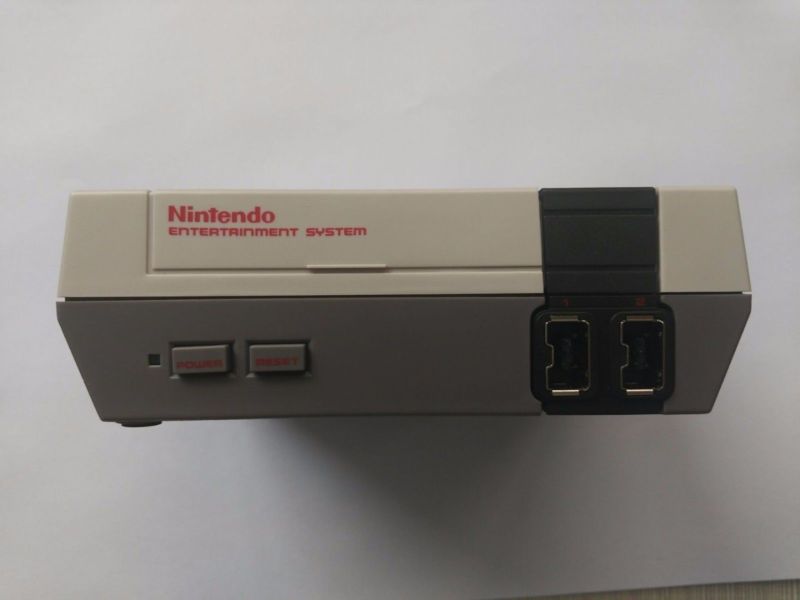
Video games have a long history of counterfeit cartridges trying to pass themselves off as legitimate. But while there are plenty of obvious knock-off video game hardware floating out there, it's pretty rare to see a game console that tries to exactly mimic the look and functionality of a legitimate system.
But the NES Classic Edition isn't your typical system story. With Nintendo discontinuing the NES Classic in April after 2.3 million sales, bootleggers have apparently stepped in to provide reasonable facsimiles in an attempt to satisfy what seems to be still healthy demand.These aren't obvious knock-offs like the Chinese "Entertainment System," which just sticks an old 500-in-1 Famiclone in a vaguely NES-Classic-Esque shell. No, these are full bootleg consoles that try to mimic the NES Classic Edition down to the small details.
NeoGAF user Lupin the Third spotted one of these bootleg systems in the wild late last week, finding physical hardware that looks remarkably similar to the real thing. Only small discrepancies like slightly misaligned or faded logos give the fake away out of the box.
Plugged in to a TV, the system menu also looks remarkably similar to the official NES Classic aside from a multicolored "Welcome" screen, as seen in this short video. Tiny changes to fonts and UI alignment aside, the basic interface looks remarkably authentic.
While a listing for an obvious bootleg system on Chinese retailer AliExpress has since been taken down, suspicious NES Classic listings are now popping up on eBay, including many from sellers that have already sold dozens of boxed consoles for hundreds of dollars a piece. Buyers who want the real deal should insist on confirmed photos of the actual hardware in question if a seller seems to somehow have a never-ending supply of the hard-to-find console (also watch out for US listings that show systems in the European box without an apparent reason).
Assuming the core game emulation is decent, a large segment of the market that's still desperate to play a small selection of NES games on their HDTVs may not even realize or care if the NES Classic systems they're buying end up being fake. And while Nintendo and the original game makers don't make any money off these ersatz systems, Nintendo voluntarily got out of the NES Classic's money-making game months ago.
Right now, the primary victim of these fakes flooding the market might be resellers who could see prices for legitimate second-hand systems go down as counterfeit supplies increase (buyers who had their hearts set on a legitimate collector's item may also suffer, of course). For everyone else, simply rolling your own emulation box is still an option if you're OK with acquiring your own ROM files.
reader comments
90